
Erasmus+: Study abroad – work for Armenia
The European Union attaches great importance to youth programmes, both within the EU and in the European Neighbourhood. The diversity of available youth, educational and exchange programmes proves that the EU sets its hopes for the future on educated, cultured and respectful young people.
The oldest and most successful of those programmes is Erasmus, turning 30 this year.
David Pipoyan, a participant of the Erasmus Mundus Alrakis II project several years ago, stressed that Erasmus didn’t simply teach him – it made him.
“It wasn’t just a scholarship for me to go study abroad, but an opportunity to become a part of the large Erasmus family. The programme did even more than that. It changed the direction of my life and my professional pursuit and made me a bearer of an entirely new system of values.”
Pipoyan took part in the programme twice, and both times he went to the Tuscia University in Viterbo, Italy. He was a doctoral researcher under Prof. Nicolò Merendino’s guidance at the food products safety and nutrition laboratory of the Department for Innovation in Biological, Agri-Food and Forestry Systems.
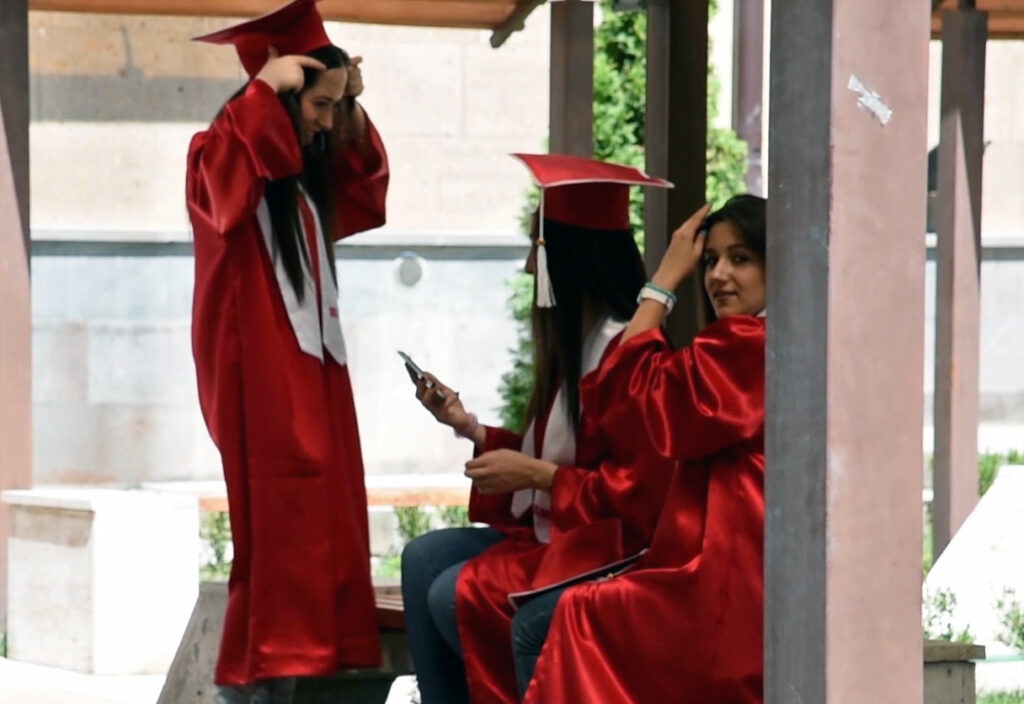
“It was very difficult, but I managed to convince them that Armenia should be the object of my research. My reasoning was that evaluation of health risks, caused by depletion of food resources, hadn’t been implemented yet in Armenia. Fortunately, they agreed, and I worked three years abroad for Armenia.”
Now, David Pipoyan works as the head of Food Chain Risk Assessment Department of the Centre for Ecological Noosphere Studies at the National Academy of Sciences of Armenia. That’s where he applies the knowledge he acquired in Italy.
“If we consider global challenges and the importance of knowledge transfer, we can say that Erasmus served its purpose. Everything I learned, I now use at the centre. I defended my dissertation at the Biomedical University of Rome and received my doctor’s degree in food science. Even if my diploma gets stolen by some chance, no one can take away what I learned and the memories that accompany me every day.”
Kristina Sargsyan took part in an Erasmus MundusMaster’s Course. She began the European Master’s in Lifelong Learning: Policy and Management (MA LLL) programme when she was already rather high up the career ladder. She started with teaching at schools and universities, then moved to retraining her colleagues, the teachers, and occupied the research ‘step’ of the ladder for some time.
“I’ve always suffered from perfectionism, but the adolescent idealism allowed me to get quite confident in the first stages of my career. But I was halted in my research, as I needed a broader perception of things to analyse sector policy. I needed to see things from above, where I’d be able to notice connections and interplay (or the lack thereof) between factors. I was too short-sighted for that, and I felt down because I lacked knowledge and experience.”
Irena Grigoryan received a full scholarship for a European Master’s in Migration and Intercultural Relations in Germany, Norway and Slovenia in 2011-2013. That was the first European-African programme of Erasmus.
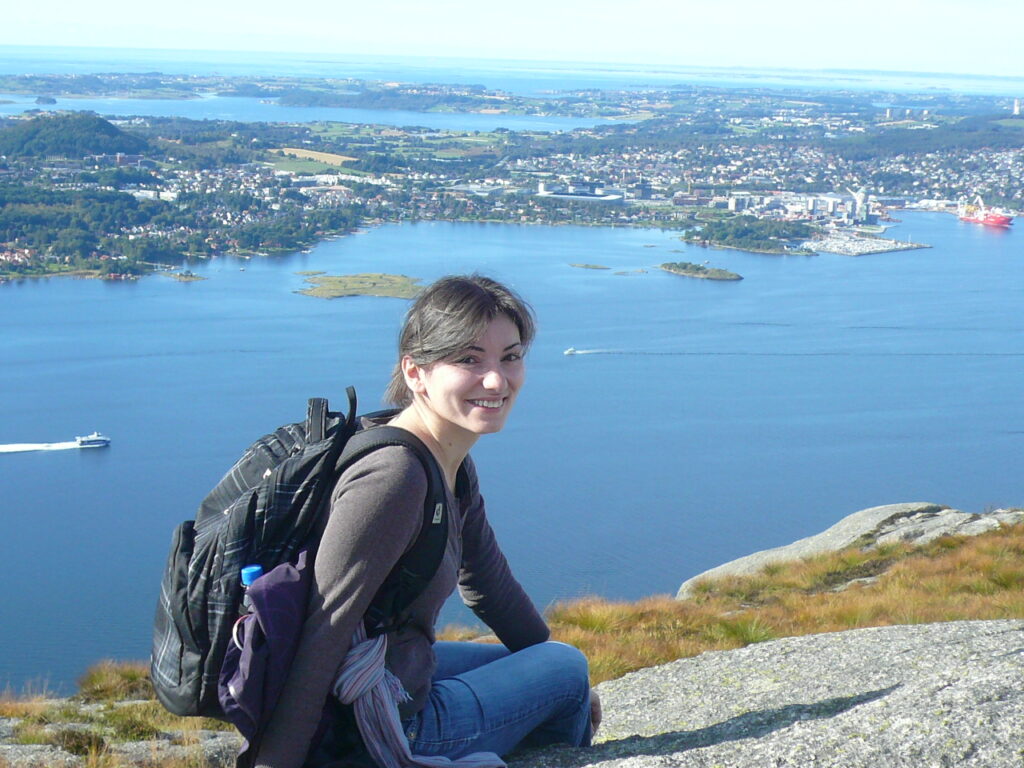
“The Erasmus experience was invaluable in terms of developing my academic, professional and personal qualities. First, I got a relevant and unique speciality that allows me to work in sectors related to issues of migrants, refugees, displaced people, diaspora, identity and cultures, which are key issues for Armenia and the world. Moreover, I appreciate my occupation because it is applicable in both humanitarian and development programmes.”
For Irena, the Erasmus experience was never limited to education.
“It re-shapes and re-establishes you as a person, broadens your mind-set, teaches you to value diversity, enriches your life with new friends and travels, toughens you up in terms of independence, and teaches you to live in peace with other cultures and yourself.”
National Erasmus+ Office in Armenia Coordinator Lana Karlova explains that the new Erasmus+ programme, which will operate until 2020, replaces and combines 7 previous programmes, including Tempus and Erasmus Mundus. In order to achieve its objectives, Erasmus+ supports the following actions:
1. Learning mobility of individuals
2. Cooperation for innovation and exchange of good practices
3. Support for policy reform
4. Jean Monnet Activities
5. Actions in the field of sport
According to her, Erasmus+ gives young people, including those from Armenia, the opportunity to study at the leading higher educational institutions abroad. Armenian universities practically joined International Credit Mobility projects in 2015, which led around 1,000 young people taking part in Erasmus+ academic exchanges.
In the meantime, 700 Armenian students and staff will have received grants from the European Union through the Erasmus+ programme to study and train in Europe until the end of July 2018.
Edith Soghomonyan, Programme Officer from the National Erasmus+ Office in Armenia notes that Erasmus was a life changing experience for the absolute majority of the Armenian participants. Many of them received study experience abroad owing to this project, acquiring new connections, acquaintances with international students, knowledge of education models in a given country, while developing at the same time their language skills, getting to know the cultures and traditions of the hosting country and forming a full understanding of the European education system.
Author: Davit Alaverdyan
MOST READ
SEE ALSO

No, time is not on Russia‘s side
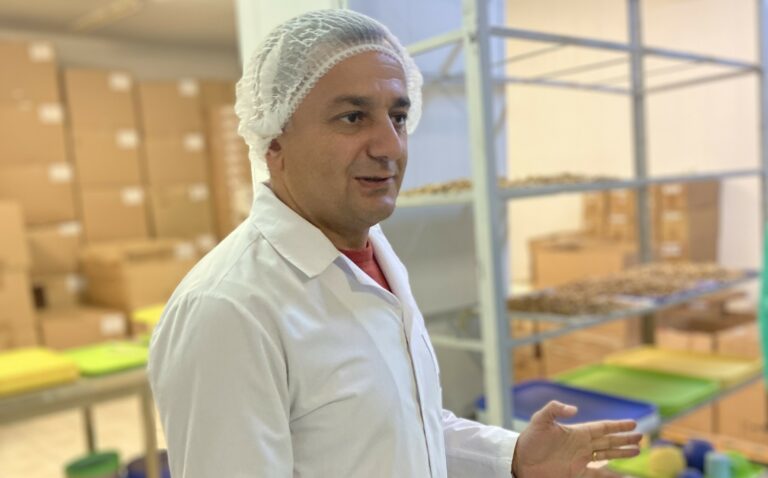
Sweet smell of chocolate
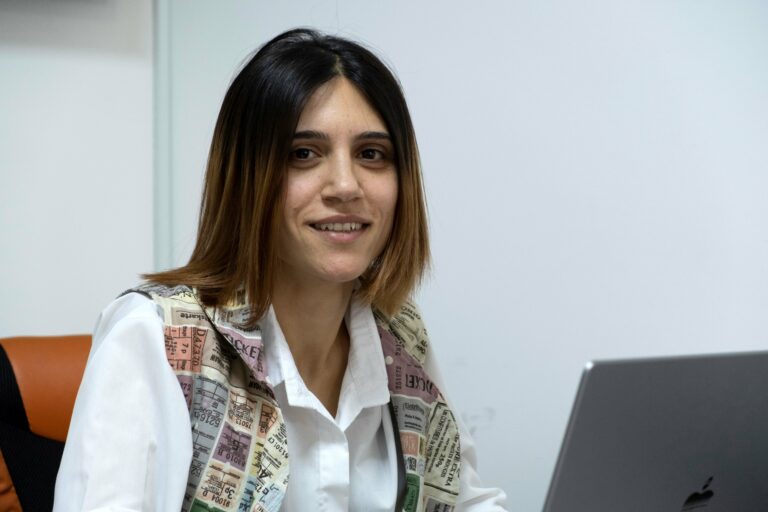
‘Be yourself, and always move forward’: Meri’s advice to young women in business

Be one step ahead of a hacker: check simple cybersecurity tips!
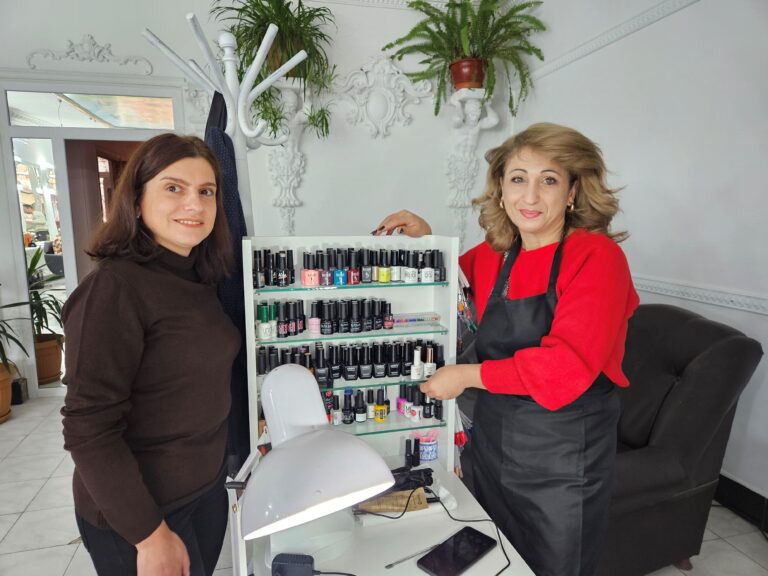
The power of skills: women paving the way to their own business in rural Armenia
More campaign pages:
Interested in the latest news and opportunities?
This website is managed by the EU-funded Regional Communication Programme for the Eastern Neighbourhood ('EU NEIGHBOURS east’), which complements and supports the communication of the Delegations of the European Union in the Eastern partner countries, and works under the guidance of the European Commission’s Directorate-General for Neighbourhood Policy and Enlargement Negotiations, and the European External Action Service. EU NEIGHBOURS east is implemented by a GOPA PACE-led consortium. It is part of the larger Neighbourhood Communication Programme (2020-2024) for the EU's Eastern and Southern Neighbourhood, which also includes 'EU NEIGHBOURS south’ project that runs the EU Neighbours portal.

The information on this site is subject to a Disclaimer and Protection of personal data. © European Union,







